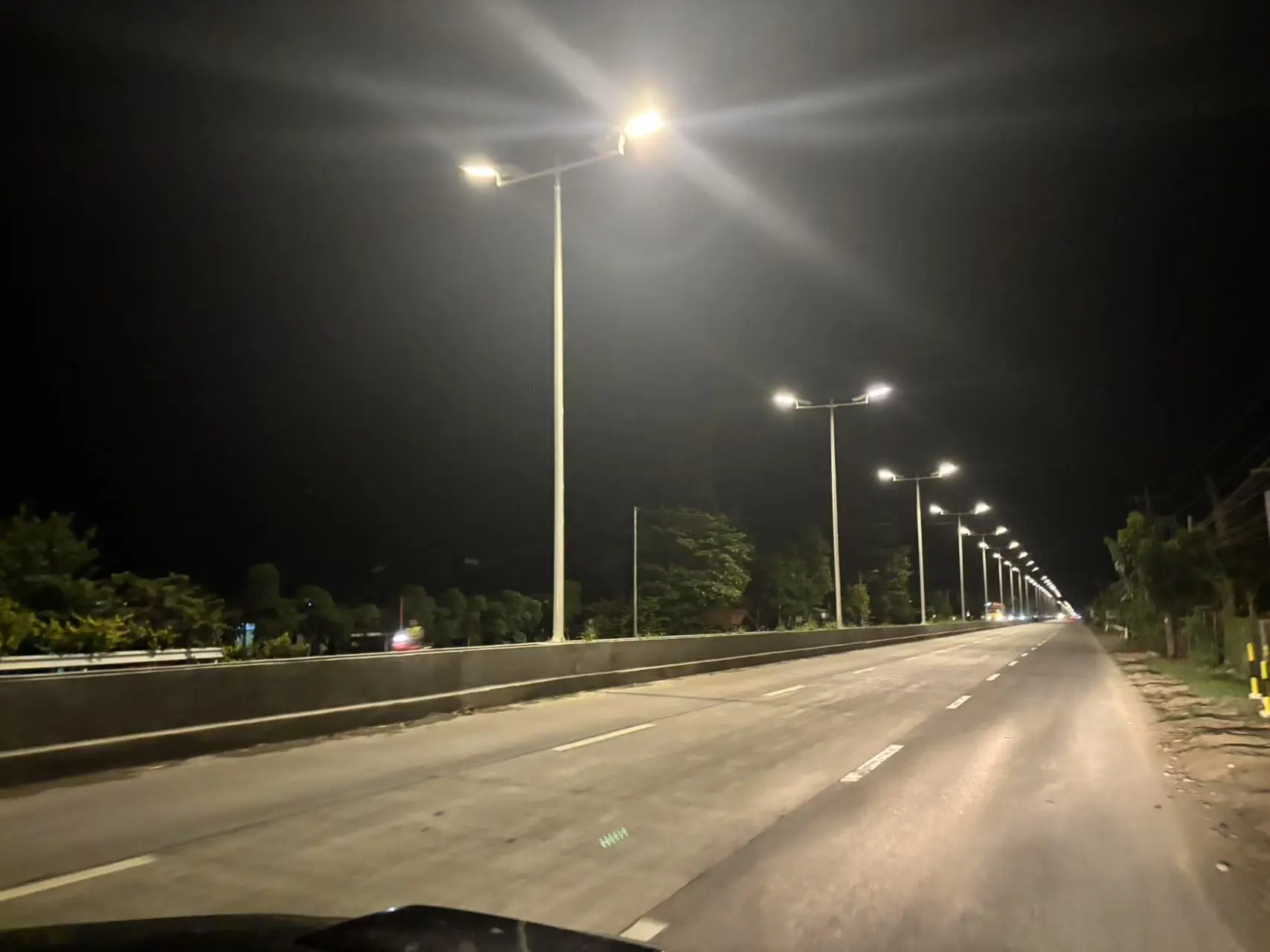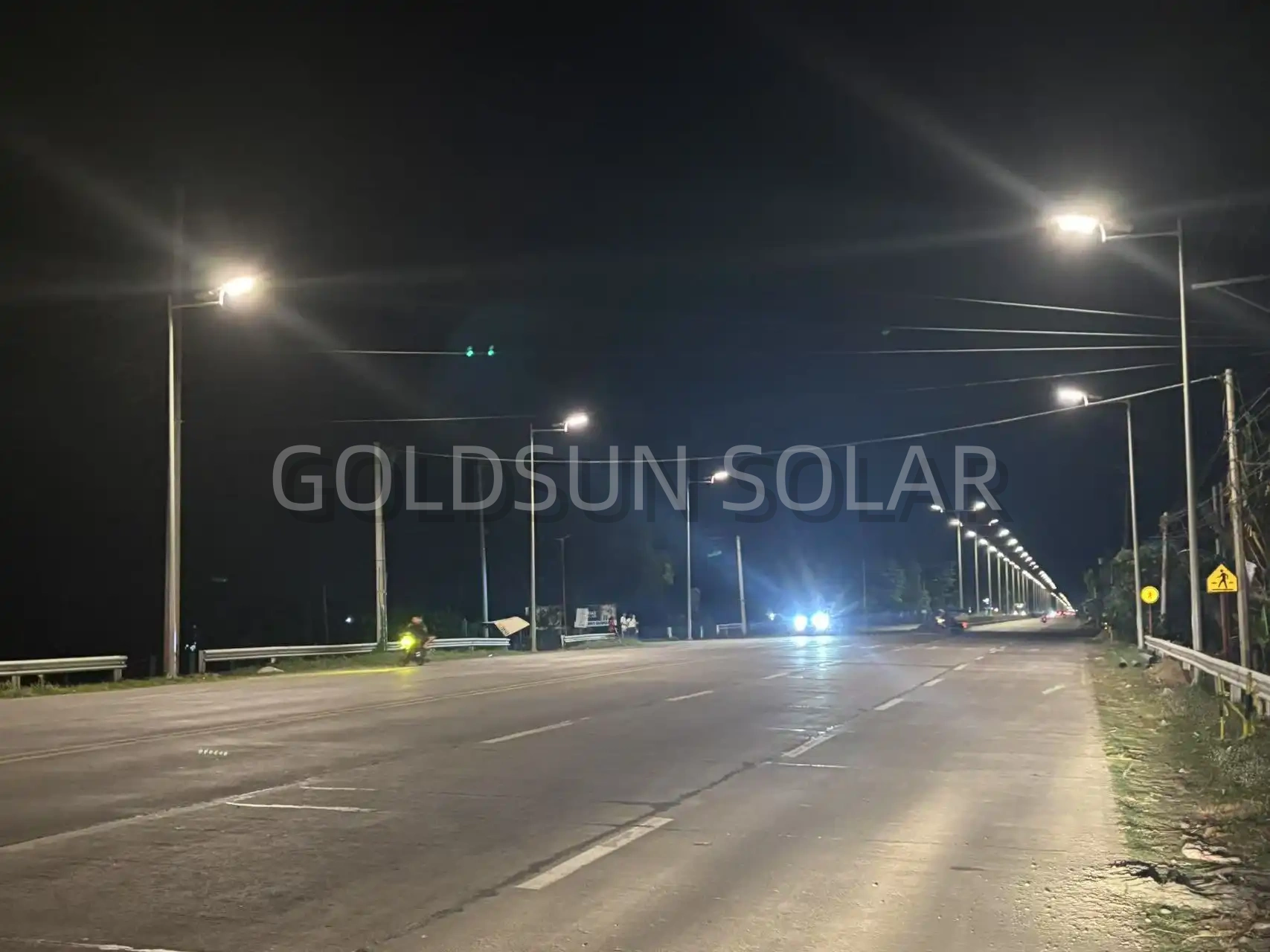Solar LED Street Lamp Certifications Every Buyer Needs
When investing in solar LED street lamps, understanding the necessary certifications is crucial for ensuring quality, safety, and performance. These certifications serve as a guarantee that the products meet specific standards and regulations, providing buyers with confidence in their purchase decisions. Whether you're a government entity planning city-wide installations, a contractor managing commercial projects, or a homeowner seeking reliable outdoor lighting solutions, knowing which certifications to look for can save you from costly mistakes and potential hazards. This comprehensive guide will explore the essential certifications every buyer should verify before purchasing solar LED street lamps.

What Are the Most Important Certifications for Solar LED Street Lamps?
ISO 9001 Quality Management System
The International Organization for Standardization (ISO) 9001 certification is a foundational standard that verifies a manufacturer's quality management system. For solar LED street lamp manufacturers, this certification confirms that the company follows consistent quality control processes throughout design, development, production, and service. When purchasing solar LED street lamps from an ISO 9001 certified company, buyers can expect products manufactured under stringent quality controls, reducing the risk of defects and ensuring consistency across batches. This certification doesn't directly test the product itself but rather evaluates the processes that create it, making it a valuable indicator of a manufacturer's commitment to quality. Companies producing solar LED street lamps with ISO 9001 certification typically document their processes thoroughly, implement continuous improvement practices, and monitor customer satisfaction, all of which contribute to superior end products.
CE Marking (European Conformity)
The CE marking is mandatory for products sold within the European Economic Area (EEA), indicating that a solar LED street lamp complies with EU health, safety, and environmental protection standards. This certification covers various aspects including electrical safety, electromagnetic compatibility (EMC), and hazardous substance restrictions. For solar LED street lamps specifically, CE certification ensures that the products won't cause electromagnetic interference with other devices, can withstand expected environmental conditions, and are electrically safe for installation and maintenance. Before applying the CE mark, manufacturers must conduct thorough product testing and documentation, often through independent testing laboratories. Buyers outside Europe should still prioritize CE-marked solar LED street lamps as this certification demonstrates compliance with internationally recognized standards for safety and performance.
UL Certification (Underwriters Laboratories)
UL certification is particularly important in North American markets and represents one of the most rigorous safety standards for electrical products including solar LED street lamps. UL testing examines electrical safety, fire resistance, weather resistance, and structural integrity. The certification process involves detailed examinations of components, materials, and construction methods to ensure solar LED street lamps can withstand various environmental conditions without creating hazards. UL standards specifically applicable to solar LED street lamps include UL 8750 for LED equipment, UL 1598 for luminaires, and UL 1703 for photovoltaic modules. Products that achieve UL certification have undergone extensive testing protocols and follow-up inspections to verify continued compliance. This certification provides buyers with assurance that their solar LED street lamps meet the highest safety standards and are suitable for long-term outdoor installation.
How Do Environmental Certifications Impact Solar LED Street Lamp Quality?
RoHS Compliance (Restriction of Hazardous Substances)
RoHS certification ensures that solar LED street lamps are manufactured without specific hazardous materials such as lead, mercury, cadmium, hexavalent chromium, and certain flame retardants. This environmental standard, originally established by the European Union, has become a global benchmark for reducing toxic substances in electronic products. For solar LED street lamps, RoHS compliance means safer disposal at end-of-life and reduced environmental impact throughout the product lifecycle. Components like LED chips, circuit boards, batteries, and wiring in solar LED street lamps must all meet strict RoHS requirements. During manufacturing, RoHS-compliant solar LED street lamps undergo material testing to verify the absence of restricted substances. Buyers should prioritize RoHS certification not only for environmental protection but also because non-compliant products may face import restrictions in many countries, potentially limiting future replacement parts availability or creating legal liabilities for large-scale installations.
IP Rating (Ingress Protection)
While not typically considered an environmental certification, the IP rating system directly measures a solar LED street lamp's resistance to environmental elements. The two-digit code (e.g., IP65, IP67) indicates protection against solid particles (first digit) and liquids (second digit). For outdoor solar LED street lamps, ratings of IP65 or higher are generally recommended to ensure durability in varying weather conditions. A higher IP rating signifies better protection against dust, rain, snow, and humidity, directly impacting the product's longevity and performance reliability. Solar LED street lamps with inadequate IP ratings may suffer from water ingress, causing electrical shorts, corrosion of internal components, and premature failure. The testing process for IP certification involves standardized procedures such as dust chamber exposure and water jet testing under controlled conditions. Buyers should match the IP rating to their specific environmental conditions – coastal areas with salt spray or regions with heavy monsoon seasons might require higher protection levels than arid environments.
IEC 62133 (Battery Safety)
For solar LED street lamps, which rely on battery storage systems, IEC 62133 certification is crucial as it specifically addresses safety requirements for portable batteries containing alkaline or non-acid electrolytes. This international standard covers lithium-ion, lithium polymer, and other rechargeable battery chemistries commonly used in solar LED street lamps. The certification involves rigorous testing for electrical, mechanical, and environmental safety, including tests for overcharging, short-circuit protection, crush resistance, and thermal stability. Solar LED street lamps with IEC 62133 certified batteries are less likely to experience dangerous failures such as thermal runaway or explosion under stress conditions. This certification becomes particularly important for installations in extreme temperature environments or areas with significant seasonal variations. Buyers should verify not just the presence of this certification but also check whether the battery specifications match their local climate conditions, as battery performance in solar LED street lamps can vary significantly between hot and cold environments, affecting overall system reliability and lifespan.
Why Does Performance Certification Matter for Solar LED Street Lamps?
LM-79 Photometric Testing
LM-79 is a standardized method for testing the electrical and photometric performance of LED products, providing objective measurements of light output, efficiency, color characteristics, and power consumption. For solar LED street lamps, LM-79 testing yields critical data about luminous flux (total light output), luminous efficacy (efficiency in converting electricity to light), color rendering index (CRI), and color temperature. These performance metrics help buyers compare different solar LED street lamp models objectively and determine whether a particular product will provide adequate illumination for its intended application. LM-79 reports typically include photometric files that lighting designers can use to model illumination patterns through computer simulation before installation. This allows for optimized placement and spacing of solar LED street lamps in real-world applications. Buyers should request LM-79 test reports conducted by accredited laboratories to ensure the data reflects actual product performance rather than theoretical specifications, as there can be significant discrepancies between marketed claims and independently verified results.
IEC 61215 (Solar Panel Durability)
The IEC 61215 standard specifically tests photovoltaic (PV) modules for long-term environmental exposure and durability, making it highly relevant for the solar panels used in solar LED street lamps. This certification involves a series of stress tests including thermal cycling, humidity freeze, damp heat, mechanical load, and hail impact resistance. Solar LED street lamps with IEC 61215 certified panels demonstrate verified durability against environmental stressors, crucial for products expected to perform reliably for 10-25 years in outdoor conditions. The testing simulates accelerated aging to predict long-term performance, helping buyers understand how the solar components will maintain power generation capacity over time. Degradation rates in solar panel output directly impact the overall performance of solar LED street lamps, potentially affecting lighting duration, brightness, and reliability during periods of limited sunlight. When evaluating solar LED street lamps, buyers should confirm that the solar panels incorporated into the system have undergone and passed IEC 61215 testing, providing assurance of sustainable performance throughout the product's expected service life.
IEC 62471 (Photobiological Safety)
IEC 62471 addresses the photobiological safety of lamps and lamp systems, evaluating potential hazards to human eyes and skin from exposure to optical radiation. For solar LED street lamps, this certification is particularly important as LEDs can emit high-intensity blue light, which at certain wavelengths and intensities may potentially cause retinal damage with prolonged exposure. The standard categorizes lighting products into risk groups ranging from exempt (no risk) to risk group 3 (high risk), with most quality street lighting falling into lower risk categories. Solar LED street lamps certified under IEC 62471 have been tested to ensure they don't emit harmful levels of ultraviolet, infrared, or high-energy visible light. This certification becomes especially relevant for installations near residential areas or pedestrian pathways where human exposure is extended and direct. Buyers should verify that solar LED street lamps are either classified as exempt or in the lowest risk groups of IEC 62471 testing, particularly for installations in areas with significant human activity. This certification helps prevent potential liability issues related to light exposure while ensuring comfortable and safe illumination for public spaces.
Conclusion
Understanding and verifying certifications for solar LED street lamps is essential for ensuring safety, quality, performance, and environmental compliance. From fundamental quality management systems like ISO 9001 to specific safety standards such as UL certification and environmental considerations like RoHS compliance, these certifications provide valuable assurance for buyers. By prioritizing properly certified products, purchasers can avoid costly mistakes, ensure regulatory compliance, and invest in sustainable lighting solutions that will perform reliably for years to come. Yangzhou Goldsun Solar Energy Co., Ltd. specializes in solar street lights, offering an impressive production capacity of 10,000-13,500 sets annually. With ISO9001 certification and products meeting CE, RoHS, SGS, and IEC 62133 standards, we have a global presence, having installed over 500 projects in 100+ countries, including UNDP, UNOPS, and IOM. Our solar lights are backed by a 5-year warranty, and we offer customized solutions with OEM support. We ensure fast delivery and secure packaging. Contact us at solar@gdsolarlight.com for inquiries.
References
1. International Electrotechnical Commission. (2023). "IEC 62133-2:2023 - Secondary cells and batteries containing alkaline or other non-acid electrolytes - Safety requirements for portable sealed secondary lithium cells, and for batteries made from them, for use in portable applications." IEC International Standards.
2. Underwriters Laboratories. (2022). "UL 8750: Standard for Light Emitting Diode (LED) Equipment for Use in Lighting Products." UL Standards Catalog.
3. European Committee for Standardization. (2021). "EN 60598-2-3: Luminaires - Part 2-3: Particular requirements - Luminaires for road and street lighting." CEN Standards.
4. International Organization for Standardization. (2024). "ISO 9001:2024: Quality management systems - Requirements." ISO Standards.
5. Illuminating Engineering Society. (2023). "IES LM-79-23: Approved Method: Optical and Electrical Measurements of Solid-State Lighting Products." IES Publications.
6. International Electrotechnical Commission. (2022). "IEC 61215-1-1:2022 - Terrestrial photovoltaic (PV) modules - Design qualification and type approval - Part 1-1: Special requirements for testing of crystalline silicon photovoltaic (PV) modules." IEC International Standards.


Yangzhou Goldsun Solar Energy Co.,Ltd.
